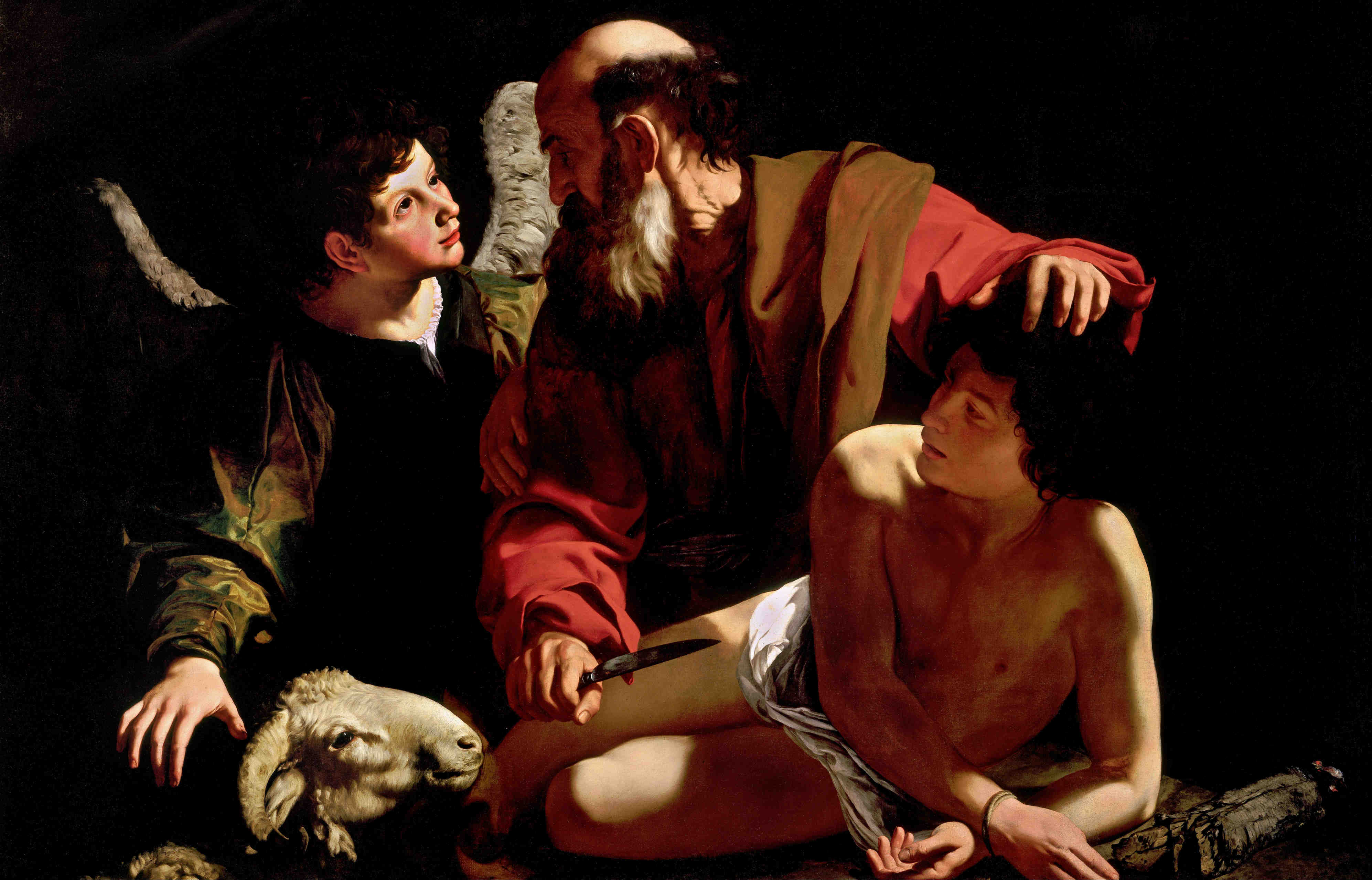Regina Caeli – Queen of Heaven, Rejoice!
The Regina Caeli, Latin for “Queen of Heaven,” is a hymn and prayer ...

Origen here treats of the Abraham’s sacrifice of Isaac on Mount Moriah. It is a good example of the “spiritual interpretation” of the Old Testament whereby persons, places, and things are recognized as prefiguring Christ and the realities of the New Covenant. This spiritual exegesis sees the ram and Isaac as figures or types of Jesus Christ. Abraham is seen as a type of God the Father.
Abraham took wood for the burnt offering and placed it upon Isaac his son, and he took fire and a sword in his hands, and together they went off. Isaac himself carries the wood for his own holocaust: this is a figure of Christ. For he bore the burden of the cross, and yet to carry the wood for the holocaust is really the duty of the priest. He is then both victim and priest. This is the meaning of the expression: together they went off. For when Abraham, who was to perform the sacrifice, carried the fire and the knife, Isaac did not walk behind him, but with him. In this way he showed that he exercised the priesthood equally with Abraham.
What happens after this? Isaac said to Abraham his father: Father. This plea from the son was at that instant the voice of temptation. For do you not think the voice of the son who was about to be sacrificed struck a responsive chord in the heart of the father? Although Abraham did not waver because of his faith, he responded with a voice full of affection and asked: What is it, my son? Isaac answered him: Here are the fire and the wood, but where is the sheep for the holocaust? And Abraham replied: God will provide for himself a sheep for the holocaust, my son.
The careful yet loving response of Abraham moves me greatly. I do not know what he saw in spirit, because he did not speak of the present but of the future: God will provide for himself a sheep. His reply concerns the future, yet his son inquires about the present. Indeed the Lord himself provided a sheep for himself in Christ.
Abraham extended his hand to take the sword and slay his son, and the angel of the Lord called to him from heaven and said: Abraham, Abraham. And he responded: Here ai M. And the angel said: Do not put your hand upon the boy or do anything to him, for now I know that you fear God. Compare these words to those of the Apostle when he speaks of God: He did not spare his own Son but gave him up for us all. God emulates man with magnificent generosity. Abraham offered to God his mortal son who did not die, and God gave up his immortal Son who died for all of us.
And Abraham, looking about him, saw a ram caught by the horns in a bush. We said before that Isaac is a type of Christ. Yet this also seems true of the ram. To understand how both are figures of Christ–Isaac who was not slain and the ram who was–is well worth our inquiry.
Christ is the Word of God, but the Word became flesh. Christ therefore suffered and died, but in the flesh. In this respect, the ram is the type, just as John said: Behold the lamb of God, behold him who takes away the sins of the world. The Word, however, remained incorruptible. This is Christ according to the spirit, and Isaac is the type. Therefore, Christ himself is both victim and priest according to the spirit. For he offers the victim to the Father according to the flesh, and he is himself offered on the altar of the cross.
Origen was one of the greatest Christian writers of the third century and is included by many in the ranks of the Early Church Fathers.
This excerpt from a homily on Genesis 22 (Hom. 8,6 8. 9: PG 12, 206-209) by Origen treats of the Abraham’s sacrifice of Isaac on Mount Moriah. It illustrates the spiritual exegesis of the Old Testament whereby the ram and Isaac are seen as s figures or types of Jesus Christ and Abraham is seen as a type of God the Father. It is used in the Roman Catholic Divine Office of Readings for Tuesday in the Fifth (5th) week of ordinary time with the accompanying biblical reading taken from Galatians 2:11-3:14.
Russell Miles
Posted at 02:38h, 15 NovemberIsn’t Abraham testing God in this story. At least that is what Jewishand Islamic teaching hold. The text itself makes it pretty clear that Abraham has no intention of harming his son but is wanting to see how far god will go in this plan.
Dr. Marcellino D'Ambrosio
Posted at 11:40h, 16 NovemberThere are actually many different interpretations of this story by Christian, Jewish and Muslim interpreters over the ages. Origin himself, who is the writer here, actually interprets it in multiple ways which are not contradictory but rather complementary, uncovering different levels or dimensions of the text’s meaning. I think one point that is hard to dispute is Abraham’s willingness to obey despite what that would cost him and despite his inability for him to see how what he is being commanded to do fits in with God’s promises of a multitude of descendants. I would say that this meaning is part of what we would call the literal sense, what was intended by the inspired author and understood by his original readers.